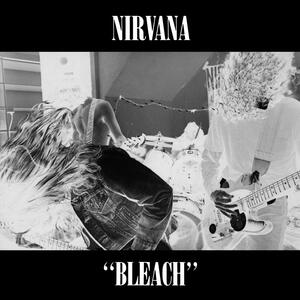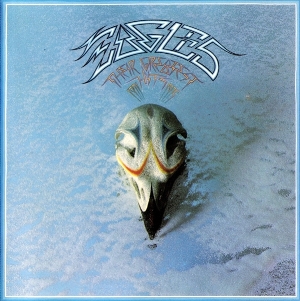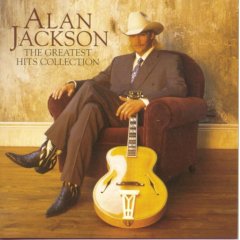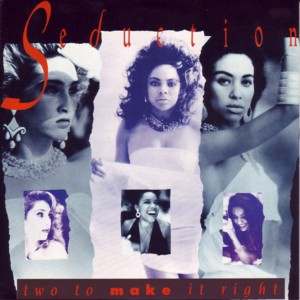
Metallica is the fifth studio album by American heavy metal band Metallica. It was released on August 12, 1991, by Elektra Records. Recording sessions took place at One on One Recording Studios in Los Angeles over an eight-month span that frequently found Metallica at odds with their new producer Bob Rock. The album marked a change in the band's music from the thrash metal style of their previous four albums to a slower, heavier, and more refined sound.

My Generation is the debut studio album by English rock band the Who, released on 3 December 1965 by Brunswick Records in the United Kingdom, and Festival Records in Australia. In the United States, it was released on 25 April 1966 by Decca Records as The Who Sings My Generation, with a different cover and a slightly altered track listing. Besides the members of the Who, being Roger Daltrey (vocals), Pete Townshend (guitar), John Entwistle (bass) and Keith Moon (drums), the album features contributions by session musician Nicky Hopkins (piano).

Bleach is the debut studio album by American rock band Nirvana, released on June 15, 1989, by Sub Pop. After the release of their debut single "Love Buzz" on Sub Pop in November 1988, Nirvana rehearsed for two to three weeks in preparation for recording a full-length album. The main recording sessions for Bleach took place at Reciprocal Recording in Seattle, Washington between December 1988 and January 1989. It is the only Nirvana album released on the Sub Pop label and their only studio album to feature drummer Chad Channing.

Tapestry is the second studio album by American singer-songwriter Carole King, released on February 10, 1971, by Ode Records and produced by Lou Adler. The album's lead singles, "It's Too Late" and "I Feel the Earth Move", spent five weeks at number one on both the Billboard Hot 100 and Easy Listening charts.

Their Greatest Hits (1971–1975) is the first compilation album by the American rock band the Eagles, released by Asylum Records on February 17, 1976. It contains a selection of songs from the band's first four albums, which were released from 1972 to 1975. On the U.S. Billboard 200 chart, the album reached number one, where it stayed for five weeks.
C+C Music Factory was an American musical group formed in 1989 by David Cole and Robert Clivillés. The group is best known for their five hit singles: "Gonna Make You Sweat ", "Here We Go ", "Things That Make You Go Hmmm...", "Just a Touch of Love", and "Keep It Comin'". The band stopped recording in 1996, following Cole's death. In 2010, C+C Music Factory reformed with Eric Kupper replacing Cole. Original member Freedom Williams acquired trademark rights to the name in 2003 and still tours under that moniker.

... Nothing Like the Sun is the second solo studio album by English musician Sting. The album was originally released on 16 October 1987 on A&M (worldwide) as a double LP and single CD. The album explores the genres of pop rock, soft rock, jazz, reggae, world, acoustic rock, dance-rock, and funk rock. The songs were recorded in March–August 1987 during sessions that took place at AIR Studios, in Montserrat, assisted by record producers Hugh Padgham, Bryan Loren, and Neil Dorfsman. It features a number of high-profile guest guitarists, including former Police member Andy Summers, Eric Clapton, Mark Knopfler, and Hiram Bullock, and is generally regarded as the culmination of the smoother, more adult-oriented sound of Sting's early work.
Seduction is an American female dance-pop, house and freestyle trio from New York assembled and produced by Robert Clivillés and David Cole, originally consisting of members April Harris, Michelle Visage, and Idalis DeLeón.

All Over the Place is the debut studio album by American pop rock band the Bangles. Released in 1984 by Columbia Records, the sound is lively and shows more Bangles collaboration and fewer keyboard overdubs than were used later on their more commercially successful albums. Although the album was not a major commercial success – peaking at #80 on the Billboard 200 albums chart – and did not produce a hit, it sold respectably, mostly through steady airplay on college stations. It also gave them the chance to perform as an opening act for Cyndi Lauper and Huey Lewis and the News, and brought the group to the attention of Prince, who would write "Manic Monday", their first hit.

"Silly Love Songs" is a song by the British–American rock band Wings that was written by Paul and Linda McCartney. The song first appeared in March 1976 on the album Wings at the Speed of Sound, then it was released as a single backed with "Cook of the House" on 1 April in the US, and 30 April in the UK. The song, which features disco overtones, was seen as being written in response to music critics accusing McCartney of predominantly writing "silly love songs" and "sentimental slush"; however, McCartney has since clarified that the song was actually directed to John Lennon who accused him of writing such songs.
"Come Go With Me" is a song written by C. E. Quick, an original member of the American doo-wop vocal group the Del-Vikings. The song was originally recorded by The Del-Vikings in 1956 but not released until July 1957 on the Luniverse LP Come Go With The Del Vikings. The final version was released in the second week of January 1957 and was led by Gus Backus. When Joe Averbach, the owner of Fee Bee Records couldn't handle the demand, he signed with Dot Records in late January 1957; the song became a hit, peaking at No. 5 on the US Billboard Top 100 Pop Charts. It also reached No. 2 on the R&B chart.
"Love Hurts" is a song written and composed by the American songwriter Boudleaux Bryant. First recorded by the Everly Brothers in July 1960, the song is most well known in two hit versions by UK artists; by Scottish hard rock band Nazareth in 1974 and by English singer-songwriter Jim Capaldi in 1975.

The Greatest Hits Collection is the first compilation album by American country music artist Alan Jackson. Released on October 24, 1995, it includes the greatest hits from his first four studio albums, as well as an album cut from his 1990 debut Here in the Real World and two new tracks — "Tall, Tall Trees" and "I'll Try", both of which were Number One hits for him on the Billboard Hot Country Songs.

Dionne is a studio album by American singer Dionne Warwick. It was released by Arista Records in May 1979 in the United States. Recorded during the winter of 1978–79, the album marked Warwick's debut with the label. Production on Dionne was helmed by Barry Manilow, who was paired with Warwick by Arista founder Clive Davis. Her highest-charting album since Soulful (1969), Dionne peaked at number 12 on the US Billboard 200 album chart and went platinum in the US.

Love vs. Money is the second album by American singer-songwriter The-Dream. It was released on March 10, 2009, by Radio Killa and Def Jam Recordings.

"Two to Make It Right" is a song by the American girl group Seduction, released as a single in late 1989. It appears on the group's first album, Nothing Matters Without Love featuring April Harris and Michelle Visage on lead vocals. "Two to Make It Right" peaked at number 2 on the Billboard Hot 100. The music video was directed by Stu Sleppin and produced by Bob Teeman.
"Heartbeat" is a 1981 R&B single by Taana Gardner. It was arranged by Dennis Weeden and Kenton Nix, and released by West End Records, with the more famous club mix created by Larry Levan. It reached the US Billboard R&B Singles at No. 10 and the No. 6 on the US Billboard Dance. It has sold over 800,000 copies.

The Man is the self-produced eighth album by soul singer Barry White, released in 1978 on the revived 20th Century-Fox Records label, which saw its name reverted from 20th Century.
"If You Need Me" is a 1963 song co-written and originally recorded by Wilson Pickett. It was made into a bigger hit by Solomon Burke, who sent the song to #2 on the R&B charts that year.

"Crunchy Granola Suite" is a pop rock song written and recorded in 1971 by Neil Diamond.














